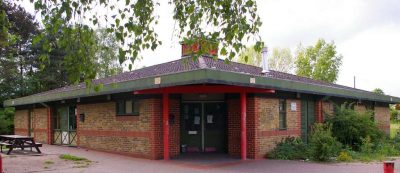
Published on 5th August 2019
Unravelling the Mystery of Community Assets
We’ve had a number of conversations with folk lately about community assets, and thought it might be a timely opportunity to help clear up the mystery around them.
Community assets simply put, are buildings or spaces, publicly or privately owned that are important to and of value to local people. Though the Localism Act, communities have new ways that local residents and groups can get involved in their area. Two key areas where residents and community groups can have a direct impact on their community are Assets of Community Value and Community Asset Transfers.
Assets of Community Value
An asset can to be nominated as an Asset of Community Value (ACVs) if their primary use is of interest socially (such as for culture or recreational use) or increases the wellbeing of the community.
Typically people tend to think of our village pubs becoming ACVs and frequently we hear of pubs in rural areas being converted to community pubs to preserve their use. You may recall The Brickmaker’s Pub in the City being registered late last year. While The Brickmaker’s hasn’t become a community pub, they are busy exploring how they can protect it and continue the great work the pub delivers to the community in making music accessible to everyone.
ACVs are often registered when an asset is under threat, comes up for sale or simply when the community recognise it is of value and want to retain it.
We’ve a number of successful examples across the city where an asset has been listed, purchased and are now successfully managed by the community. These include Wensum Sports Centre; (See our earlier blog on them here), Silver Road Community Centre and The Box (an ex police station). All three are now growing as busy community hubs.
What does it mean to registers an asset of community value?
By registering an asset with the local authority, if that space or building comes up for sale it gives the community a right to bid to buy it. An expression of interest must be submitted within 6 weeks and if successful, the community has a further four and a half months to raise funds to buy the asset. Importantly this process doesn’t promise that the community can buy the asset or dictate the price.
However, if you are in the exciting position where your bid to purchase has been accepted then this is where the hard work really starts! Now you must run it successfully so that it remains an asset of community value for the long term. There’s support available to guide you but you’d benefit from talking to one of the successful groups we mentioned above. Or talk to any of our amazing community centre committees, they all do an incredible job and can give you a realistic view on what it means to run a community venue.

Cadge Road Community Centre, the council's latest Community Asset Transfer
Community Asset Transfers (CATs)
Community Asset Transfer is not directly connected with ACVs. Just to confuse things!
A community asset transfer can be triggered when a council owned building is returned to the council and the council decide it is either surplus to requirements, uneconomic to traditionally maintain or could be better run by the community themselves.
Here the council is permitted to review these assets and decide whether offering them to voluntary or community groups at low or no rent would present a greater benefit to the city and residents than the loss of potential rental income or development.
Expressions of interest for a community asset transfer are considered on a case by case basis with applicants needing to meet the criteria set out in the policy document and with delivery criteria varying depending on the needs of the local area. There is a two-stage process with an initial expression of interest and if invited, the development of a business case. These cases are scored by a panel, with the highest scoring being offered use of the building.
We recently opened expressions of interest for Cadge Road Community Centre, pictured above. The building became vacant after the community group running it decided to retire after over twenty years of dedicated service to the community. The Henderson Trust was awarded the transfer for the delivery of its own activities and services, and for use by other groups. For the delivery of activities and services that benefit or are of value to the community. This safely insured that existing local groups continue to use the centre as well as developing new activities such as a youth hub, holiday food provision for families and food and companionship activities for older residents.
The council will continue to look out for other venues which could bring community value in the hands of local residents.
Taking an alternative approach
If you are looking for space, many groups tend to automatically think that they need their own building. And while this is fab, make no mistake it will absorb a lot of your time and energy to simply manage and maintain the building. And it is not exactly a cheap option.
Fortunately there is another solution. Hire or borrow space from an existing venue! We are extremely lucky here in Norwich to have a wide range of venues, from traditional community centres and church halls, to rooms in cafes, pop up market stalls and even space in the Castle Mall. Whether you are looking for a regular commitment or one off use, by hiring you can focus all your energies on doing what you do best, and it’s definitely the easier option!
Check out our Spaces section here see the latest LUMi space offers.
More information on:
Assets of Community Value:
For further guidance on ACVs on My Community/Locality’s website is a great resource: mycommunity.org.uk/take-action/land-and-building-assets/assets-of-community-value-right-to-bid/
You can also find information on Norwich City Council’s website, including a list of successful and unsuccessful ACV applications here: ww.norwich.gov.uk/info/20011/about_your_council/1342/assets_of_community_value
On community asset transfers:
If you would like to be informed of future CAT opportunities, please email communities@norwich.gov.uk to be added to our mailing list.
Further information on Norwich City Council CAT process can be found here: www.norwich.gov.uk/info/20235/community_asset_transfer/1596/community_asset_transfer_application_process